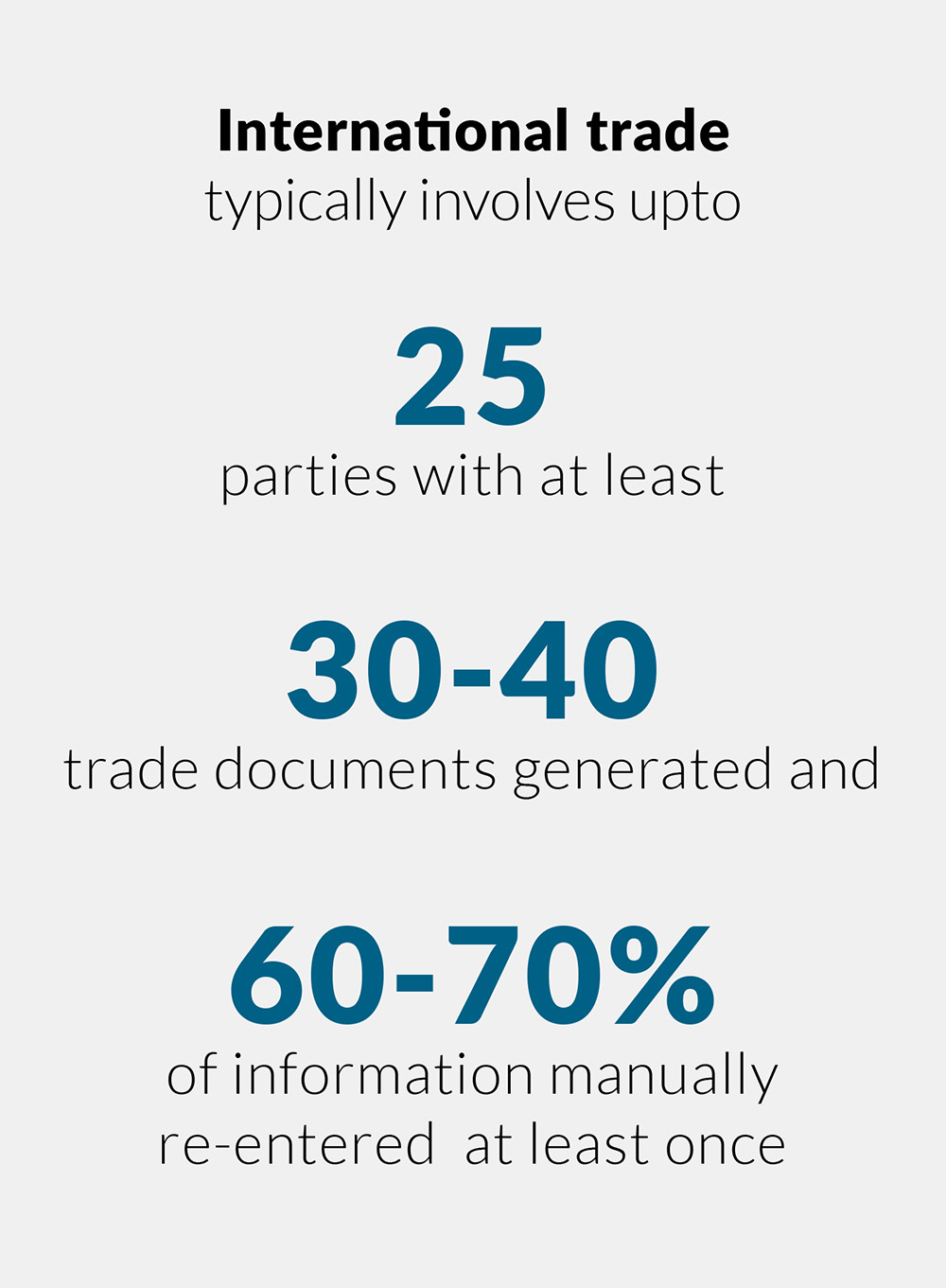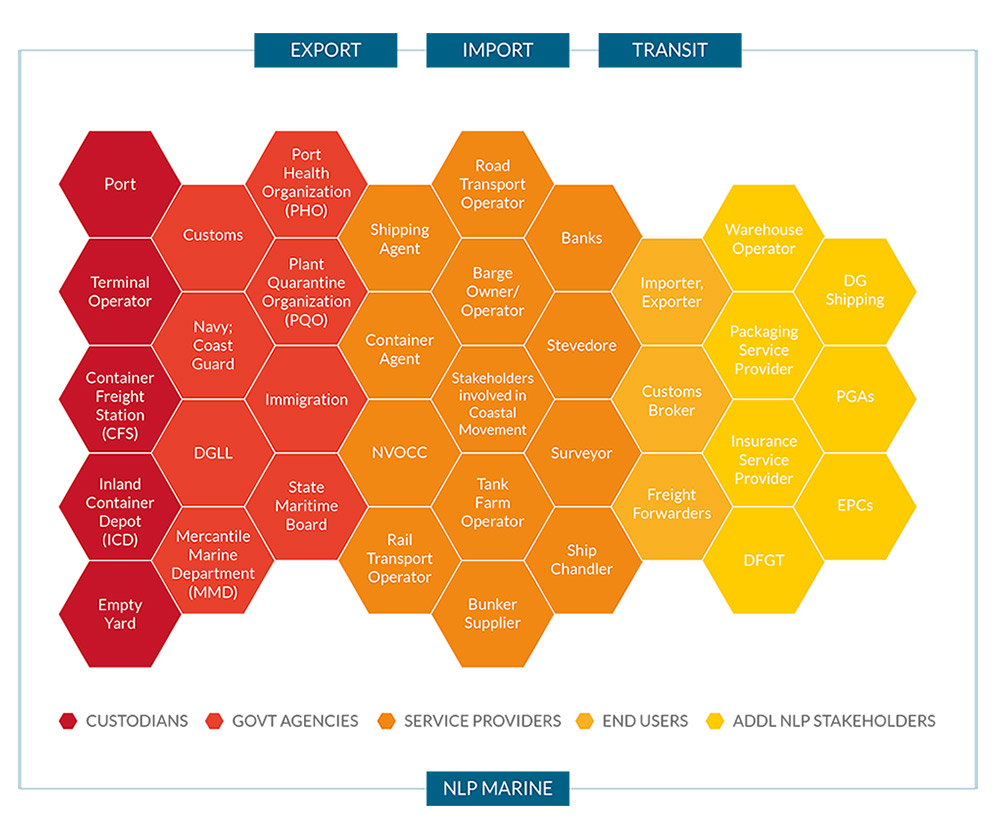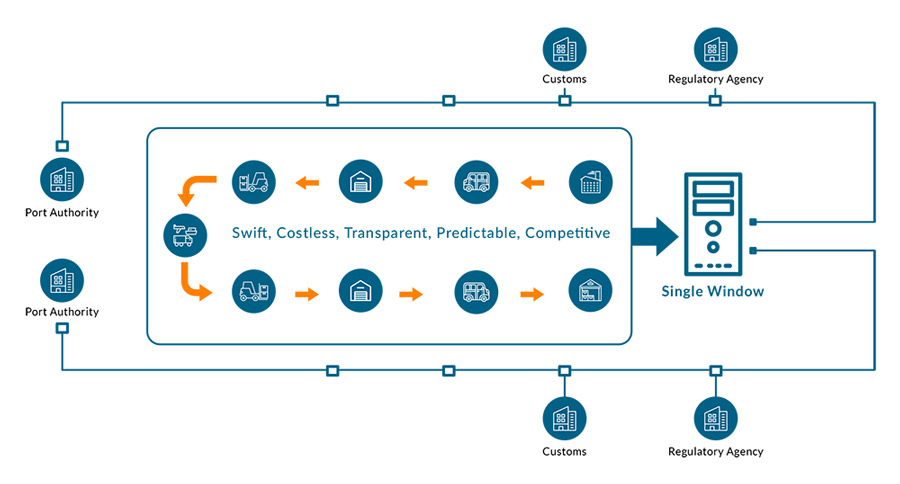We as an industry have and are making progress in adapting and adopting digitalisation. There has been an accelerated growth of many digital transformation initiatives, which are gaining momentum in the new normal. While this benefits us and does away with many of the tedious manual processes for us as a customer, we are often left confused as we have to deal with many disconnected systems. To comply with various regulatory requirements, we are frequently required to submit large volumes of information in multiple documents to multiple stakeholders for multiple processes. Often the same information has to be loaded into different system. Sometimes, we even have to send manual paper forms. All this effort leads to increased compliance costs and is the major barrier to the development of international trade.

The Port Community System (PCS 1x) has made significant progress and stimulated change, but, in a few areas, it needs to be enhanced. For example, the portfolio of services must be expanded, some processes need to be optimised, more standardisation is necessary and more stakeholders must be brought onboard. This upgraded system will be the National Logistics Portal (Marine) or NLP Marine, which will be a holistic cargo community system serving the needs of end users – importers and exporters in India.
NLP is an inspiring example of the United Nations’ single-window concept and has been embraced by several Indian government entities. Under the aegis of the Indian Ports Association, Ministry of Ports, Shipping and Waterways, the system will evolve into the best-in-class globally. NLP Marine is envisaged as a single interface with four interconnected platforms:
- Cargo Services Platform,
- Regulatory Bodies Services Platform (including participating government agencies and EPCs
- Carrier Services Platform and
- Finance and Insurance Services Platform.
Each platform will be independent but interconnected to serve the specific needs of its own group of stakeholders. With information flowing in multiple patterns and directions, all closely knitted together like spinnerets, the platform will interconnect everything. In a literal sense, it will be a web of services.
The platform provides services for different use cases to facilitate inter- and intra-national movements, including across borders, via inland and coastal waterways, the road and rail networks, and shipping lanes.
Building NLP Marine revolves around a comprehensive and synergistic effort that aims to ensure that the problems faced by the logistics ecosystem are viewed in their entirety and solved with an end-to-end perspective. Development will capitalise on the existing IT solutions created over time by various stakeholders: logistics service providers, buyers as well as central and state government agencies, such as customs, DGFT, railways, ports, inland waterways, coastal shipping etc.
Engaging NLP Marine will allow both the public and private sectors to harness and embrace the digital way of working. It will pave the way for sustainable economic development. The resulting collaborations will, over time, benefit all stakeholders – cargo owners, logistics service providers, facilitators and digital entrepreneurs – regardless of where they are in the value chain or their size.
NLP Marine is aligned with the standardisation and harmonisation underpinning the upcoming National Logistics Policy. It will be one of the media used to realise the Maritime Vision 2030 for India. By contributing to increasing the ease of doing business and improving our rankings in various other indices, NLP Marine will be a big step along the road on our digital transformation journey as a country.
Its power to spur progress, however, will be unleashed only through a well- co-ordinated collaborative approach with a specific focus on optimised and sustainable results.
This needs all of us to curb our desire to go back to the manual parallel processes just because that is the easy thing to do right now. Let us all adopt NLP Marine as “the new normal”.
Building a community system is about change management, changing mindsets and bridging the gaps, not merely concocting code.
Proudly building a single window for the trade, by the trade.

